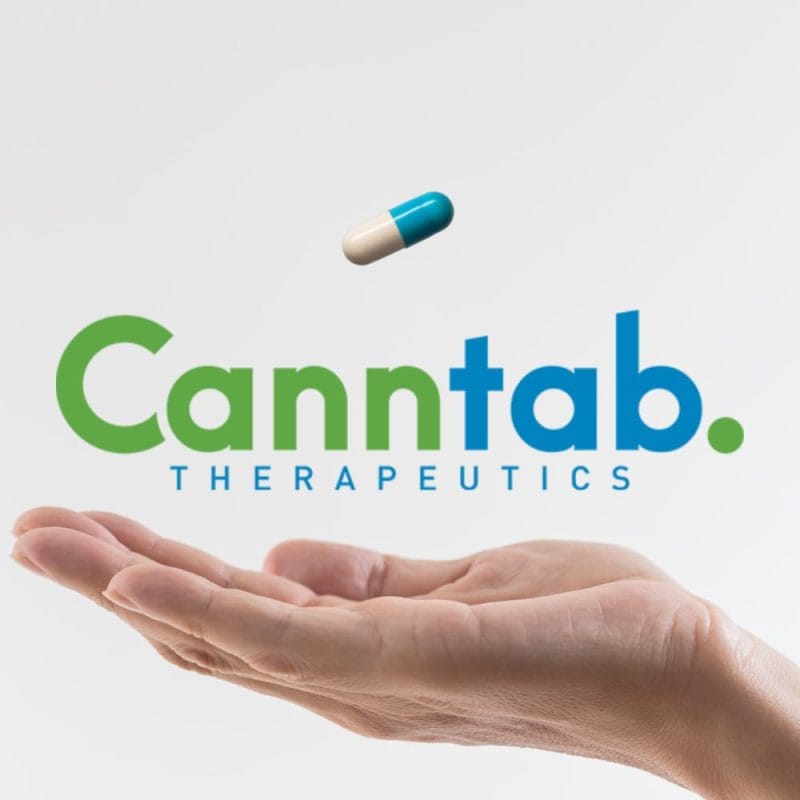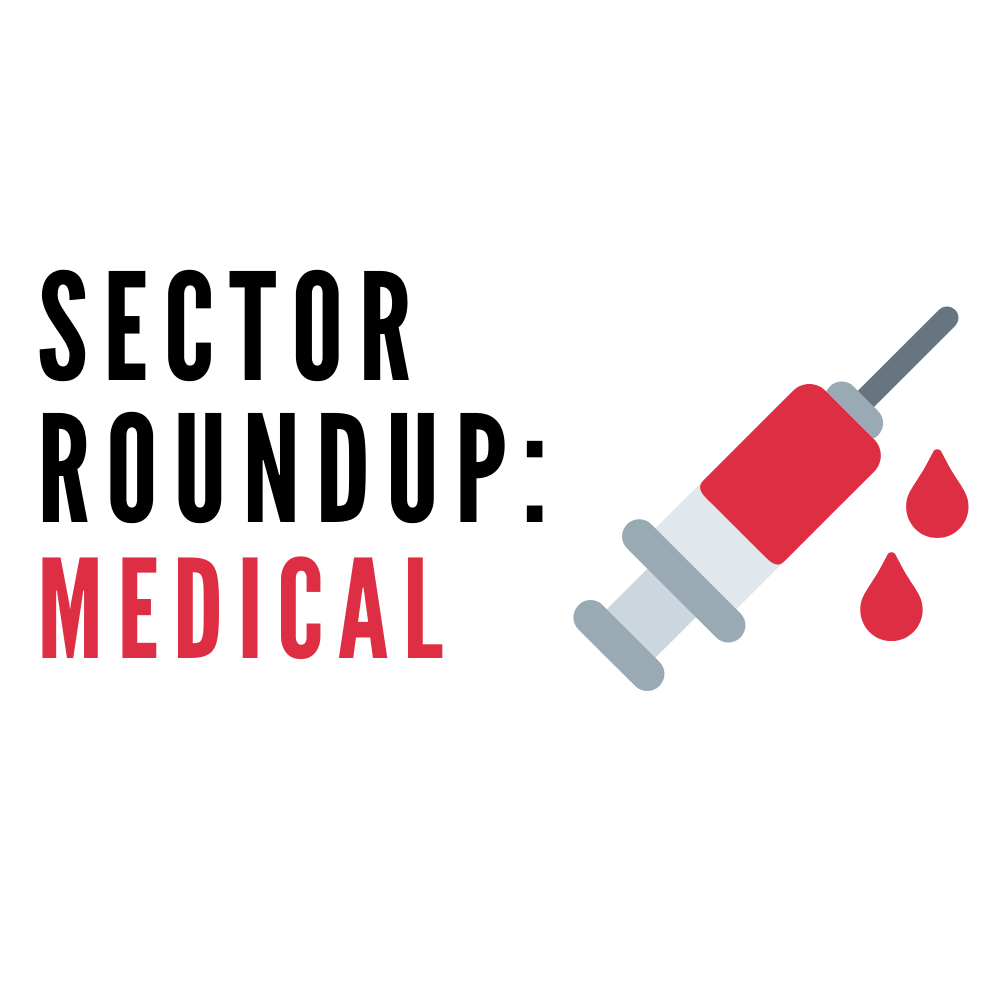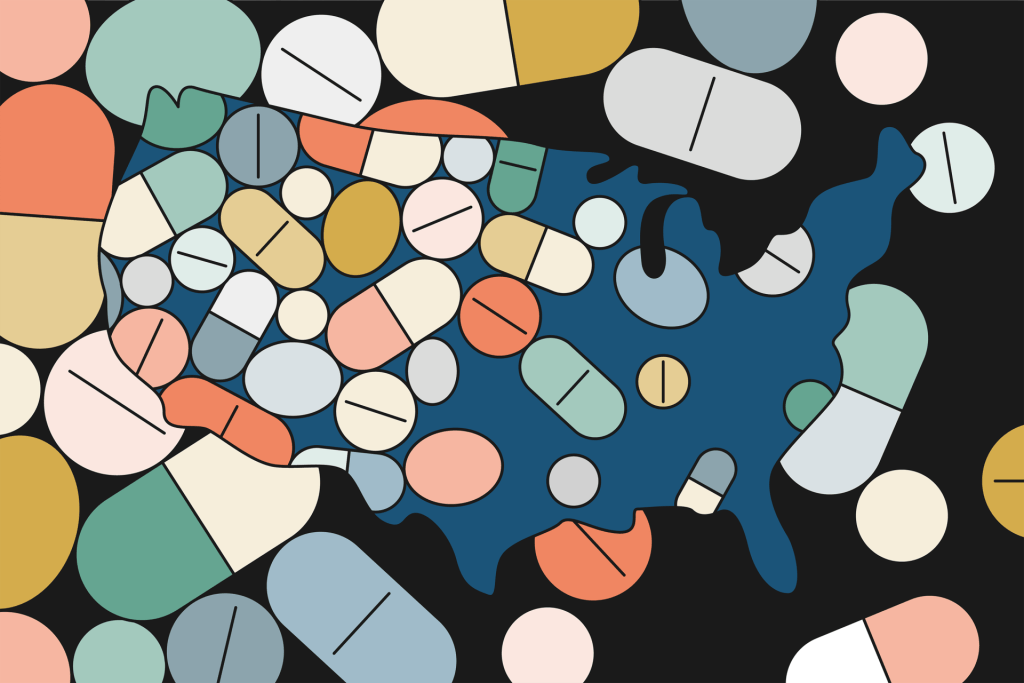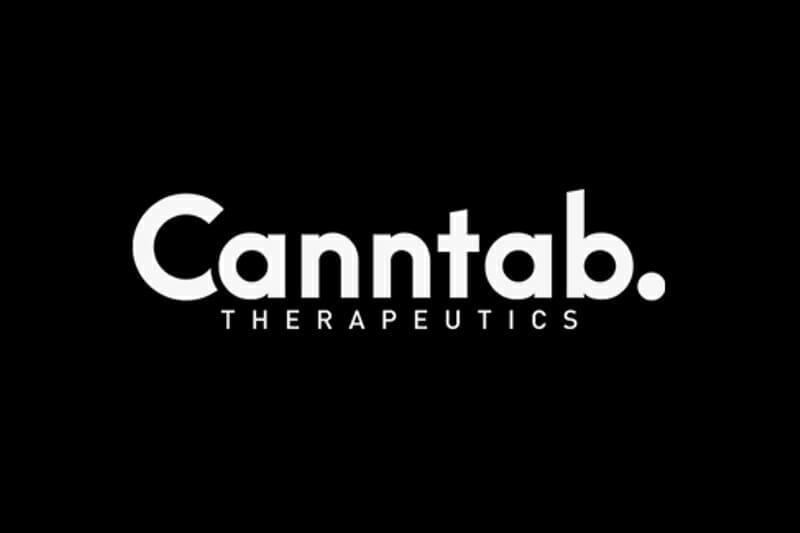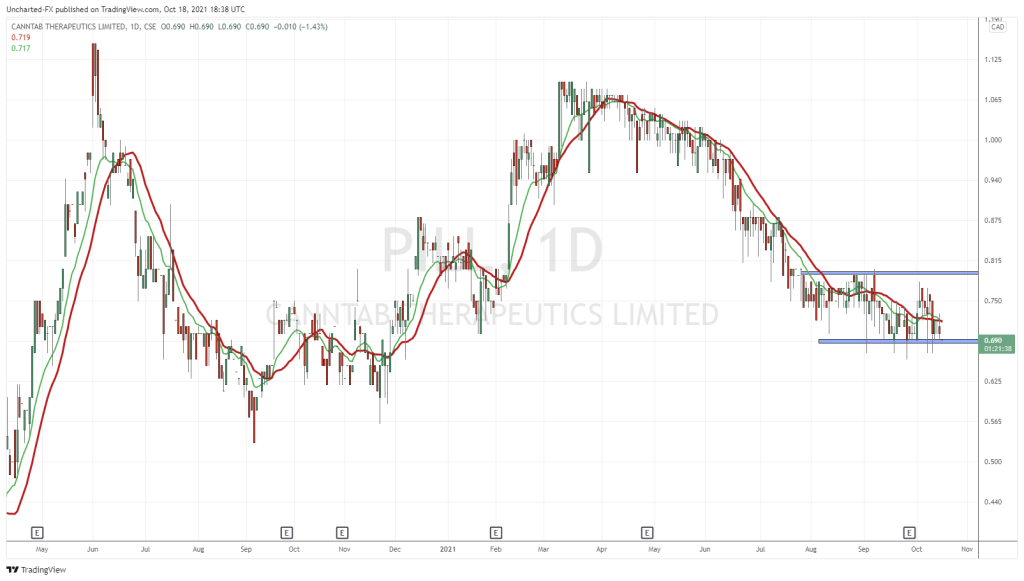A Fundamental Problem
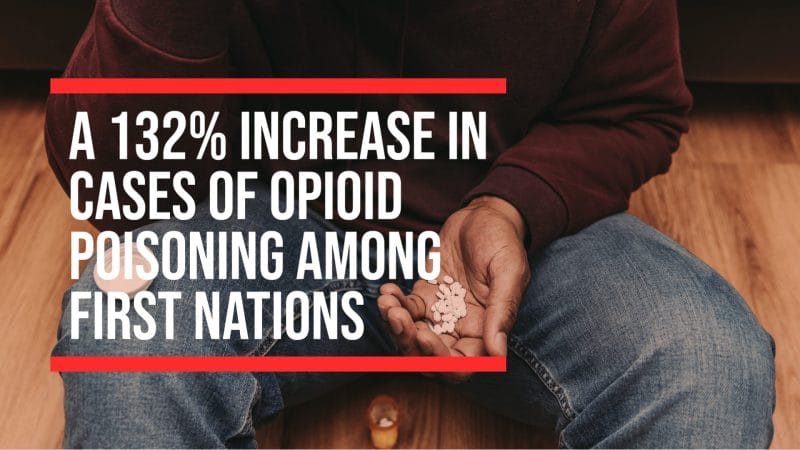
The opioid crisis has spread like an epidemic across North America. Between January 2016 and March 2019, an estimated 12,800 Canadians died from apparent opioid-related overdoses in Canada. However, First Nations are significantly overrepresented in opioid-related deaths, with a mortality rate approximately four times higher than the rest of the population. Off-reserve, First Nation individuals and those aged 44 years and younger have been impacted even more.
Since 2019, First Nations have seen an increase in opioid-related poisoning and deaths, primarily due to the growing presence of fentanyl in the unregulated drug supply. In fact, according to the Public Health Agency of Canada, the pattern of apparent opioid-related deaths is changing in tandem with the increasing presence of synthetic opioids in the illegal market. To be more precise, the proportion of reported apparent opioid-related deaths involving fentanyl was 53% in 2016, a number that continues to rise.
With this in mind, on November 26, 2021, Chiefs of Ontario, in collaboration with the Ontario Drug Policy Research Network, released two reports. These reports highlight the increase in opioid-related poisoning during the COVID-19 pandemic and the urgent need to address the opioid crisis affecting First Nations in Ontario. It goes without saying that the ongoing pandemic has exacerbated the opioid crisis, disproportionately so among First Nations.
Calls for Justice
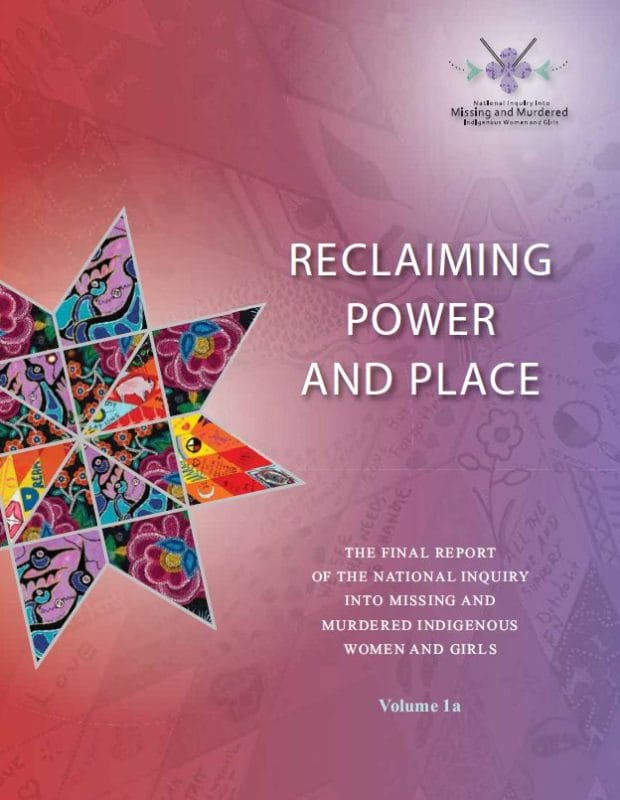
In the first year of the pandemic, 116 First Nations lost their lives due to opioid poisoning, representing an increase of 132% compared to a 68% rise amongst the rest of the population. Of this amount, fentanyl-related poisoning contributed to 87% of opioid-related deaths. That being said, an increasing number of opioid-related deaths amongst First Nations emphasizes the need for the implementation of legal imperatives outlined in the 231 Calls for Justice.
Specifically, Call for Justice 3.2 calls upon all governments to provide adequate, stable, equitable, and ongoing funding for Indigenous-centred and community-based health and wellness services. Similarly, Call for Justice 3.4 seeks to ensure that all indigenous communities receive immediate and necessary resources, including funding and support, for the establishment of sustainable, permanent, no-barrier, preventative, accessible holistic, wraparound services. This includes mobile trauma and addictions recovery teams.
Ultimately, the Chiefs of Ontario have called upon the federal government to establish measurable goals, identify gaps in health outcomes, and implement the healthcare rights of First Nations. Furthermore, these reports demonstrate an urgent need for appropriate access to opioid treatment and harm reduction services for First Nations communities. Having seen the abysmal condition of some reserves in Ontario, fundamental change is needed to address the needs of First Nations. This isn’t something that can wait.
Canntab Therapeutics Ltd. Brings Change
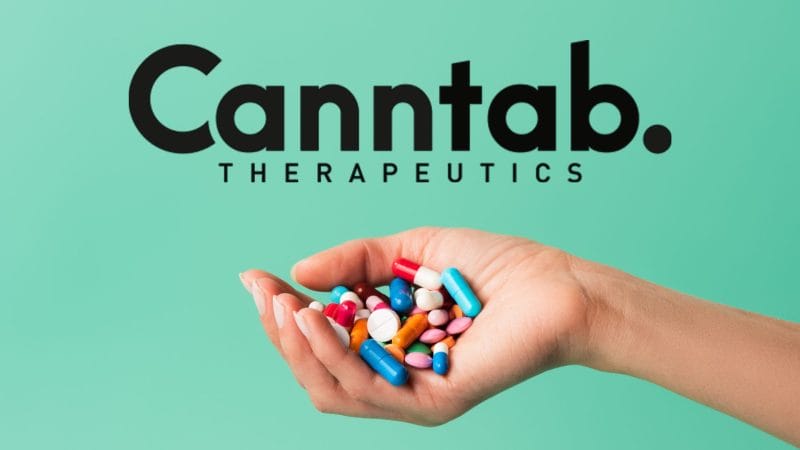
- $28.001M Market Capitalization
That being said, Canntab Therapeutics Ltd. (PILL.C) has no intention of waiting. Canntab is a Canadian biopharmaceuticals company focused on manufacturing and distributing hard pill cannabinoid formulations in a variety of doses and time-released combinations. The Company creates cannabinoid and terpene blends in hard pill form for therapeutics applications, which Canntab then provides to doctors, patients, and consumers.
On February 7, 2022, Canntab announced a strategic planning collaboration and commercial partnership with First Nations Growers GP Inc. and First Nations community leader Chief Adam Pawis of the Shawanaga First Nation. Through this partnership, Canntab will assist in creating an Indigenous Opiate and Illicit Drug Crisis Plan, whereby Canntab will provide direct online access through a First Nation-specific web portal.
“In collaboration with Canntab, our goal is to ensure every First Nation-Inuit, and Indigenous person across Canada has immediate ease of access to Canntab’s healthy alternative medicinal solutions to opiate and illicit drugs, regardless of community remoteness or geographical location,” commented Chief Pawis.
This web portal is designed to service Indigenous communities and their members nationwide, both on and off First Nation territories. In doing so, this partnership is intended to provide health and wellness solutions to over 100,000 patients utilizing Canntab’s products to mitigate opiate use and abuse as well as other medical issues. With this in mind, Canntab’s web portal will provide First Nation-Inuit and Indigenous Peoples with customized access to Canntab’s offering of pharmaceutical-grade products.
Through this collaborative plan, Canntab’s full suite of oral tablet products, including a comprehensive range of THC and CBD strengths, will be available to First Nations, Inuit, and Indigenous communities and their members across Canada. The precise and customizable dosage of the Company’s hard pill solutions is ideal for Elders and patients with substance use disorders related to opiates, painkillers, and illicit drugs as well as chronic pain and addictions. For a closer look at Canntab’s products, check out this article.
“Canntab is well-positioned to provide community members alternative treatments for pain management, sleep, alcohol, and drug addictions and other overall general well-being solutions” stated Canntab’s Chief Executive Officer, Larry Latowsky.
Canntab’s agreement with First Nations Grower GP Inc. is for an initial one-year term, which is renewable and provides a cash fee of $30,000 for start-up costs. Additionally, Canntab will issue 1,000,000 warrants upon satisfaction of specified milestones and regulatory approval. These warrants are exercisable into one common share of Canntab at a price of $0.80 per warrant for a period of 24 months.
Is treating opioid dependence with another substance a good idea? As previously mentioned, Canntab’s products are precise and provide customizable dosing. This minimizes the risk of substance abuse and ensures that a patient receives the dose they require. No more and no less. Furthermore, in a study published by The Conversation, drugs like THC showed potential in reducing the addictive potential of opioid-class drugs. Similarly, CBD was able to inhibit the brain’s dopamine pathways, demonstrating anti-addiction potential.
Financials
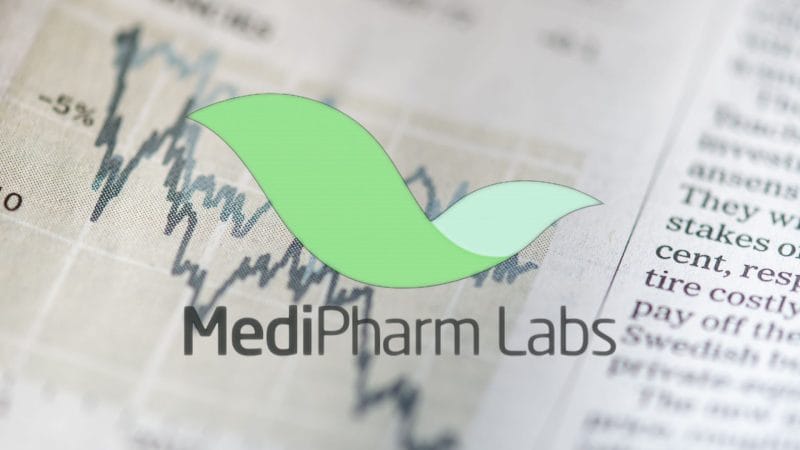
According to Canntab’s FY2021 Financial Results, the Company had cash and cash equivalents of CAD$1,490,863 on May 31, 2021, down from CAD$2,090,438 on May 31, 2020. As of May 31, 2021, Canntab’s total assets and total liabilities were CAD$6,360,844 and CAD$4,092,086, respectively. As of May 30, 2020, these numbers translate to CAD$5,509,114 and CAD$1,980,732, respectively.
With the loss of Jeffrey Ward Renwick, Canntab’s Co-Founder, Director, and President, 2021 was a rough year for Canntab. Investors were left in the dark following a press release drought, resulting in a steady decline in the Company’s stock beginning at the end of May 2021. However, Canntab has come back swinging with a fairly steady stream of news outlining the Company’s progress.
Since its comeback, Canntab has launched its own e-commerce platform, entered into multiple partnerships, and received its medical sales license from Health Canada, to name just a few achievements. With this in mind, Canntab’s unimpressive 2021 Financial Results are sure to be overshadowed by the Company’s progress in 2022. Canntab’s revenue as of May 31, 2021, was nil, down from CAD$133,334 on May 31, 2020.
Coming up, 1,280,000 stock options at an exercise price of $0.25 will expire on February 21, 2022. Although 2021 was a rough year for Canntab, I am hopeful for the Company. Canntab’s products are the real deal and the Company’s various Health Canada approved licenses are a testament to this. Following the Company’s latest news, Canntab has traded 199,350 shares, crushing a peak volume of 30,500 on February 4, 2022. Personally, I will be keeping an eye out for Canntab’s future quarterly results.
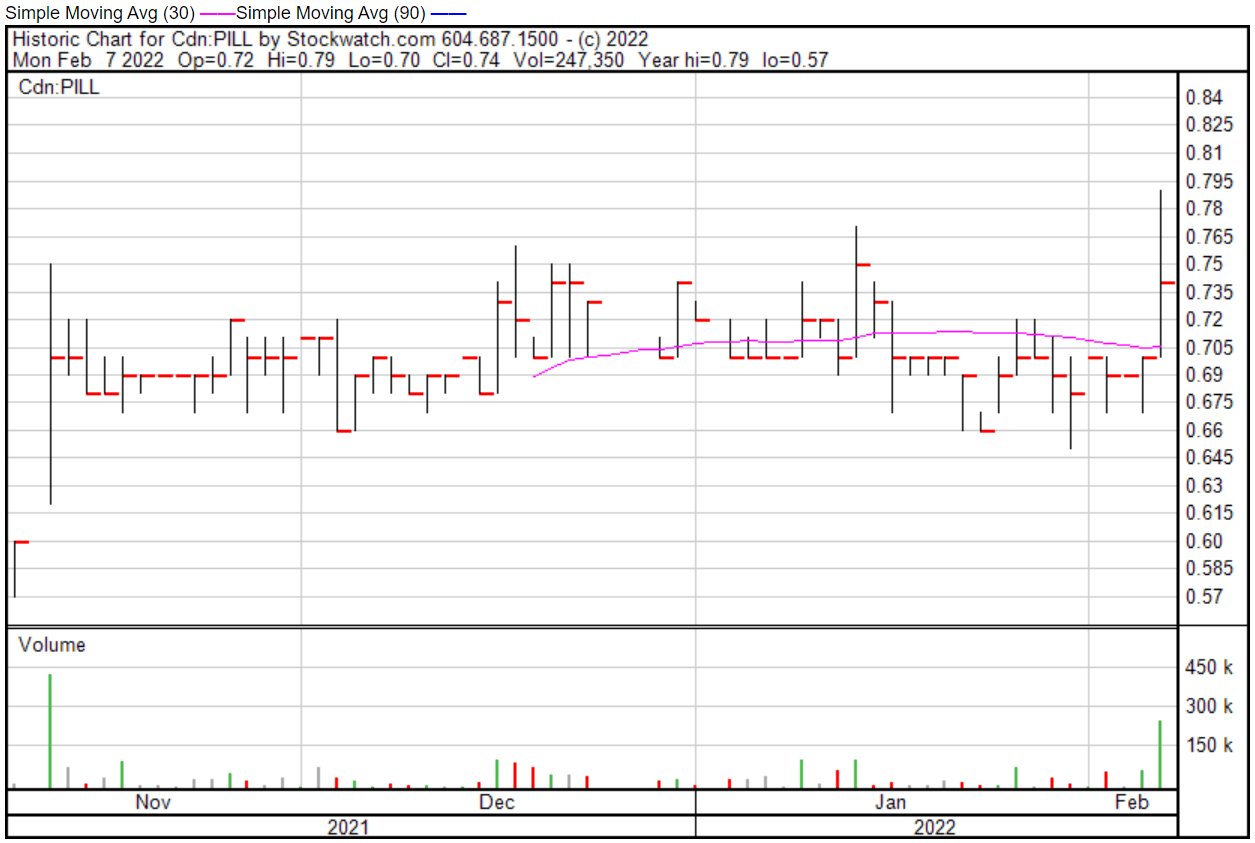
Canntab’s share price opened at $0.72 today, up from a previous close of $0.70. The Company’s shares are up 7.14% and were trading at $0.75 as of 12:35 PM EST.
For more like this, check out my Substack here!

